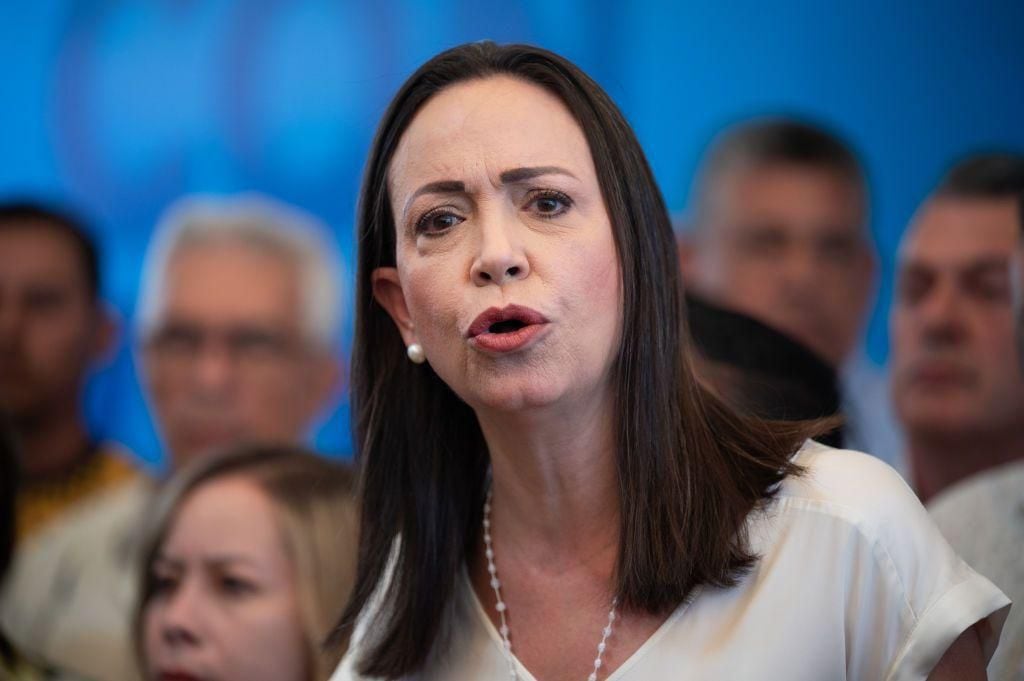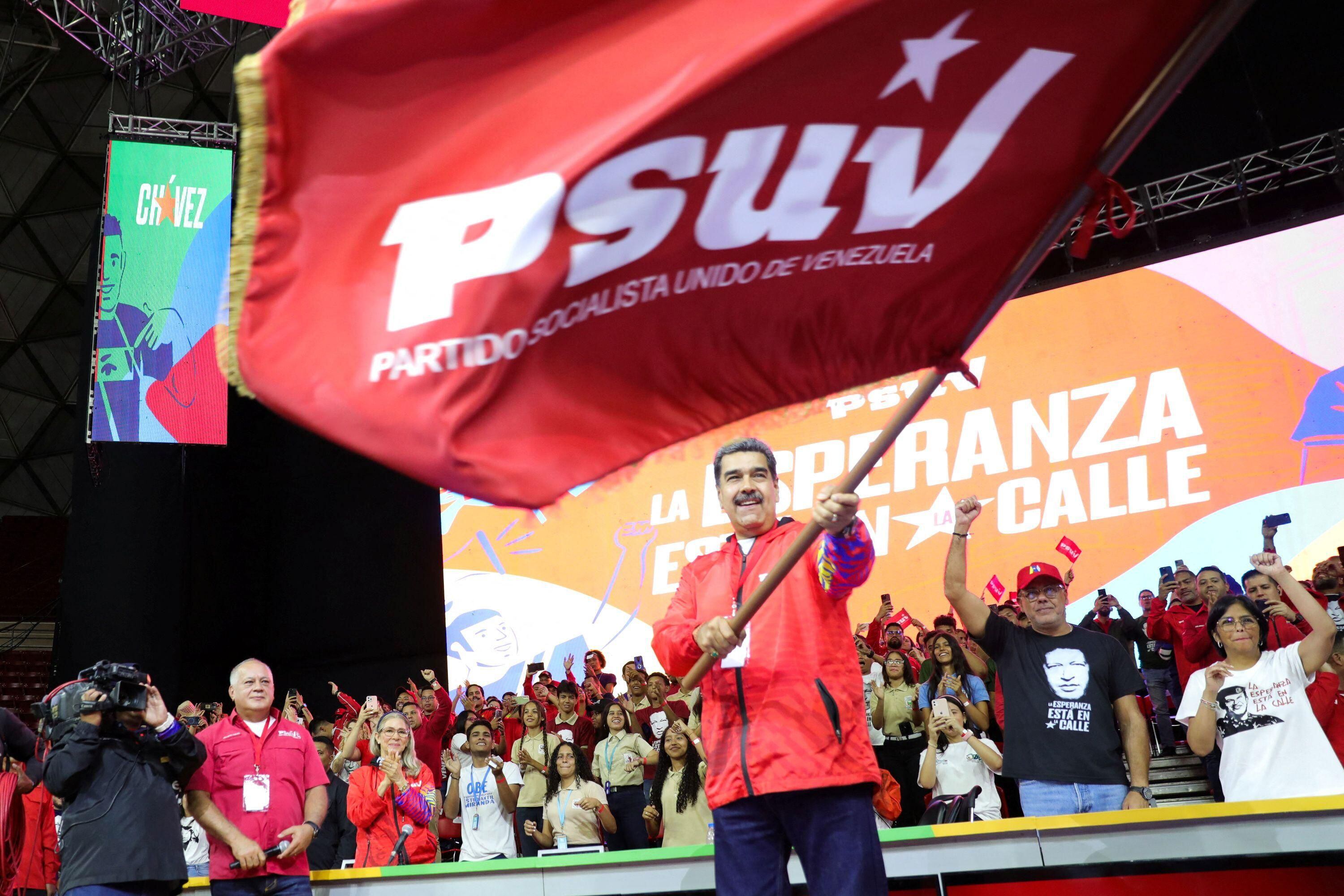The electoral campaign for the presidency of Venezuela The situation is increasingly escalating towards the opposition. Nicolás Maduro’s regime not only blocked the candidacy of the main opposition leader, María Corina Machado, and then that of her replacement, but also presented two dangerous bills that, according to experts, increase the persecution of those seeking changes of government in the country. the country.
TO LOOK: Blocks and substitute candidacies: the opposition’s options and challenges in the elections against Maduro
The Parliament’s Internal Policy Committee, controlled by Chavismo, is preparing a bill against “traitors to the country”, said deputy Diosdado Cabello, president of that committee and number two in the regime, on Wednesday.
The initiative was proposed in March by the president of the Legislature, the ruling party Jorge Rodríguez, who proposed the creation of a law so that “crimes against sovereignty” are “severely punished”, alluding to those who showed a critical position on the referendum held in December over the controversy with Guyana over the territory of Essequibo.
He also stated that the “traitors” “called for invasions, violence” and “the assassination of the president of the republic”.
Cabello, in turn, did not give details, but explained that the project is based on article 130 of the Constitution, which establishes “the duty to honor and defend the homeland” and to “protect sovereignty, nationality, territorial integrity, self esteem”. determination and the interests of the nation.”
It is not the only initiative promoted by the regime. On Tuesday, the Government presented to the Legislature the ‘bill against fascism, neo-fascism and similar expressions’, drawn up by order of Maduro.
The project, presented by vice-president Delcy Rodríguez and includes four chapters and 30 articles, establishes “means and mechanisms to preserve peaceful coexistence, public tranquility, the democratic exercise of popular will, the recognition of diversity, tolerance and respect reciprocal, in the face of fascist attacks.”
When defending the bill, Rodríguez stated that “extremist sectors” threatened the security and future of the country with the anti-government protests that took place in 2014 and 2017.
He added that these sectors intend to “attack the political power” of Venezuela, which will hold presidential elections on July 28.
The regime is betting on these bills at a time when the electoral campaign is entering a decisive phase and polls give Maduro 20% support. In April, the applications presented – 13 in total – may be approved, challenged and candidates replaced in some circumstances.
José Carrasquero, a Venezuelan political analyst and specialist in electoral campaigns, believes that Chavismo is intensifying its measures to hinder the electoral process because it knows that in free elections it has no choice.
“These projects are directed against the opposition. As they are not exactly democrats, they need to somehow make the electoral process more difficult, trying to make it look like a competitive and fair election to the outside world, when it is not,” he tells El Comercio.

He highlights that these laws are a mechanism to “generate fear and paralyze people” because they seek to make citizens afraid to express themselves on social media. “These laws serve as a reference to know why they will put you in prison.”
After the candidacy of Machado and his replacement, Corina Yoris, was blocked, eyes are on two of the opponents who managed to register.
On the one hand, Manuel Rosales, governor of the state of Zulia and leader of the Un Nuevo Tiempo (UNT) party, registered at the last minute under the slogan that the opposition should not be left without participating. On the other hand, the Democratic Unitary Platform (PUD), the main opposition coalition, “provisionally” appointed former ambassador Edmundo González Urrutia.
Amid the uncertainty, Machado insists on supporting Yoris as his candidate, which means that the next few weeks will be crucial for reaching agreements.
For Carrasquero there is no doubt that the regime will try to exert more pressure on the opposition in the rest of the campaign. “There will definitely be more arrests, the regime wants to keep people in line. If they put María Corina’s second in prison, what will be left for the citizens?
Machado herself warned a group of countries on Wednesday about the risk of being detained, at the same time as she called for “extreme diplomatic resources” so that the electoral guarantee agreements signed by the regime are fulfilled.
“Currently, my teams across the country are at risk of future forced disappearances and I myself could be subject to unjustified arrests,” said the former deputy in a letter addressed to 18 countries in America, Europe and Africa, as well as to the highest European Union (EU) representative for Foreign Affairs, Josep Borrell.

Carrasco considers it unlikely that the regime will begin a wave of cancellations of candidacies because “the majority of the remaining candidates are controlled by their government”. However, he does not rule out Maduro invalidating Rosales’ candidacy if he considers him a threat.
“If you did, it would be very rude, but it is a possibility if you find yourself cornered. We must keep in mind that if Maduro leaves power, the chances of him going to prison are very high,” she says.
He adds that the perspectives in the majority opposition are not yet clear and that everything will depend on the ability of the members of the Democratic Unitary Platform (PUD), the main opposition coalition, to reach an agreement. “They may, with the support of the international community, be able to mobilize. What Maduro knows is that any candidacy supported by María Corina Machado will defeat him,” he concludes.
Source: Elcomercio
I am Jack Morton and I work in 24 News Recorder. I mostly cover world news and I have also authored 24 news recorder. I find this work highly interesting and it allows me to keep up with current events happening around the world.

:quality(75)/cloudfront-us-east-1.images.arcpublishing.com/elcomercio/VSSR7LJA4FALJGGVCZKHYUVJJQ.jpg)

:quality(75)/cloudfront-us-east-1.images.arcpublishing.com/elcomercio/6ABKCLPO2ZHDXEENFTFWWK2DLY.jpg)
:quality(75)/cloudfront-us-east-1.images.arcpublishing.com/elcomercio/BMKKVFZ2NJESRMJT7LZSH6OHW4.png)
:quality(75)/cloudfront-us-east-1.images.arcpublishing.com/elcomercio/JZMGDH5GFBBDPMYRLZLPOGGHOI.jpg)
:quality(75)/cloudfront-us-east-1.images.arcpublishing.com/elcomercio/ZDZTMJOEYFEFPEKYCPC3KHJLLI.jpg)
